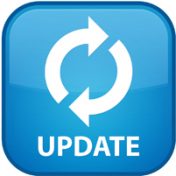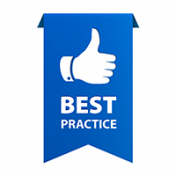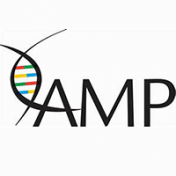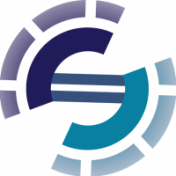Automating a clinical workflow creates a stable and repeatable clinical analysis. Automation reduces the potential to introduce human error, helps in regulatory compliance, and improves the precision of the clinical results. It is important to know that if you run a sample through your clinical pipeline, you are going to get the same results today as you will in 6… Read more »
The Beginning of Your Tertiary Analysis VarSeq is designed to be your NGS tertiary analysis solution providing users simple but in-depth means of exploring gene panel, exome, and whole genome variants. For those not accustomed to the VarSeq software, the main import file for variant analysis is the VCF. Those who are familiar with the VCF know that there can… Read more »
We are happy to announce that our latest version of SVS includes the ability to call CNVs on low read depth Whole Genome Sequencing (WGS) data. Designed for calling large cytogenetic events, this algorithm can detect chromosomal aneuploidy events and other large events spanning one or more bands of a chromosome from genomes with average coverage as low as 0.05x…. Read more »
The PhoRank tool in VarSeq is further explored in this post by looking at the sample-specific capability. VarSeq PhoRank Part: 1 Variant Phorank Gene Ranking showed how the PhoRank algorithm could be applied to all the variants in a VarSeq project, regardless of the number of (or difference in) samples. There is another PhoRank algorithm in VarSeq that allows the… Read more »
One of the main goals of clinical genomic labs is to identify problematic variants in affected individuals. One tool to assist in this search is the phenotype driven variant ontological re-ranking tool in VarSeq called PhoRank. A common situation facing clinicians is sorting through thousands of variants provided by an individual’s exome data (or possibly the individual’s nuclear family exome… Read more »
In a recent webcast, our VP of Product and Engineering Gabe Rudy gave us insight into the current capability and benefits to lifting over to the GRCh38 assembly. Golden Helix fully supports this transition into the most recent reference assembly and have developed our tools on both the 38 and 37 fronts. The purpose of this blog is to not… Read more »
The SVS 8.8.3 release was created to incorporate some of the CNV, genome assembly control, and splice site capabilities that are present in VarSeq, as well as clean up and streamline the GWAS workflows (like when using Mixed Linear Model algorithms) for a better user experience. New Product Add-Ons for SVS New Features Designed for calling large cytogenetic events, this… Read more »
In part one of this series, we discussed how the ACMG Classifier can be implemented in your filter chain to support a best practice workflow. To continue our discussion on best practices of VSClinical, this blog will shed light on other attributes of VSClinical that can add support to your evaluation. Specifically, we will explore how VSClinical can help users… Read more »
VSClinical is our most recent product that allows users to evaluate variants according to the ACMG guidelines. As with any tertiary analysis, there is a need to implement best practices into your workflow and using VSClinical for the ACMG guidelines is no exception. That said, we have put together a Best Practices Blog Series, with the purpose of discussing some… Read more »
We just got back from three busy days at the Molecular Pathology (AMP) conference in friendly San Antonio, Texas. Keeping up the Golden Helix conference momentum for the year, we had 3-4 in-booth demonstrations a day covering our CNV calling, variant interpretation, and data warehousing products for NGS-based genetic tests. And in short, NGS based tests for cancer and germline… Read more »
VarSeq Stable 2.1.0 is Ready for Clinical Validation, See it in Action Next Week This week we are happy to see the general availability of VarSeq 2.1, the culmination of the last five months of work since we launched VSClinical. We have been blown away by the adoption of VSClinical, outpacing any previous product launch in terms of the pace… Read more »
In the first two parts of this blog, we presented examples of how to leverage Warehouse-stored VSClinical and CNV assessment catalogs in the VarSeq project. Now we are going to explore the Warehouse interface a bit more and show how to query on stored variant data. To access Warehouse from VarSeq, click the V Connect icon located in the top… Read more »
We recently hosted a webcast covering the value and application of VSWarehouse through VarSeq. Not only is VSWarehouse a solution for storing your NGS data in a central repository, but it also provides a means to enhance the tertiary analysis done in VarSeq. VSWarehouse will store all your sample/variant data but also stores your catalogs of pathogenic variants, clinical reports, and has the capability of filtering/querying on all your stored data quickly. In addition,… Read more »
This webcast generated some great questions! If you have any other questions for me that are not answered below, please feel free to ask those by emailing [email protected]. To what level does the Warehouse scale? We have tested multiple instances of Warehouse in-house and on the cloud and it scales incredibly well to tens of thousands of samples and 100s… Read more »
Even though GRCh37 is currently the most widely used human genome assembly, GRCh38 provides a more complete human reference genome, offers more accurate genomic analysis, and includes centromere and mitochondrial information. However, we’re getting ahead of ourselves. Perhaps start with how we got here. The Human Genome Project started this all off with the world’s largest biological collaboration project in… Read more »
This webcast generated some great questions! If you have any other questions for me that are not answered below, please feel free to ask those by emailing [email protected]. Does VSClinical come with support for the new reference genome? Yes! We worked hard to make everything work in VSClinical regardless of your choice of reference genomes. The only caveat is that… Read more »
Sentieon; your swift secondary analysis solution. Golden Helix’s software solutions present a reputable and top-quality analysis of your NGS data. Looking at this process from a 30,000 ft view, the annotation and filtering of variants in your vcf files and discovery of CNVs based coverage data in the bam file make up the tertiary level portion of the analysis. However,… Read more »
In my recent webcast, I demonstrated how VS-CNV users can detect high-quality copy number variant events. If you didn’t have a chance to join, you can view the recording below! This webcast generated a lot of great questions! If you have any other questions about the content covered in this webcast that is not answered below, please feel free to… Read more »
With this two-part blog series, users should now be able to perform CNV analysis using their data, set up basic quality filter standards to isolate high-quality events and utilize annotations to hone in on publicly known events as well as in-house recorded CNVs from previous projects.
If we take a look back in time, a lot happened in September 1998. It is the month in which the first ever “Who wants to be a Millionaire?” show debuted on ITV in Britain. Larry Page and Sergey Brin incorporated Google in September, registering the Google.com domain on September 15, 1998. And on that very same day, we officially… Read more »












